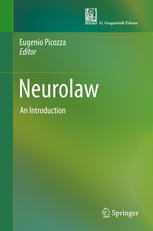

Most ebook files are in PDF format, so you can easily read them using various software such as Foxit Reader or directly on the Google Chrome browser.
Some ebook files are released by publishers in other formats such as .awz, .mobi, .epub, .fb2, etc. You may need to install specific software to read these formats on mobile/PC, such as Calibre.
Please read the tutorial at this link: https://ebookbell.com/faq
We offer FREE conversion to the popular formats you request; however, this may take some time. Therefore, right after payment, please email us, and we will try to provide the service as quickly as possible.
For some exceptional file formats or broken links (if any), please refrain from opening any disputes. Instead, email us first, and we will try to assist within a maximum of 6 hours.
EbookBell Team

0.0
0 reviewsThis volume illustrates to the public, and legal experts, the basic principles of the field of neuroscience, that commonly goes under the name of Neurolaw. First, it illustrates the relationship between neuroscience, natural sciences and social sciences. Furthermore, it highlights numerous problems concerning the fundamental philosophical concepts used by Neurolaw and evaluates the validity of the method and the limits of a neuroscientific approach to the problems of law and justice.The volume explores the possibility of application of these concepts on the fundamentals of the general theory of law and legal dogmatics. It also examines the main problems of Neurolaw in relation to public, private, criminal and procedural law. In conclusion, the book follows a systematic method that makes it an thorough manual for the introduction to Neurolaw.